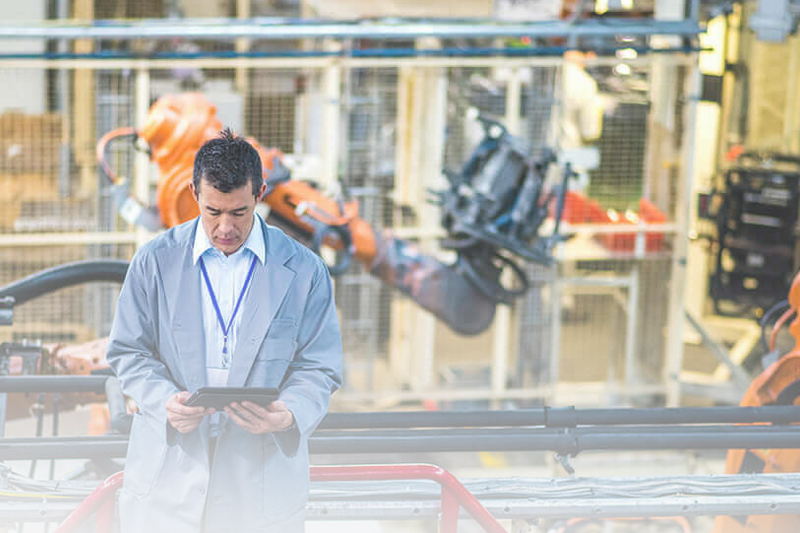The Future of Artificial intelligence in Manufacturing Industries

“Industry 4.0”- the world is on the brink of this fourth industrial revolution
4.0 brings forth the technologies such as the Internet of things and Artificial intelligence to make things “smarter” – allowing companies to revolutionize the way they manufacture and ship goods. Artificial intelligence (AI) is just now finding its niche in manufacturing, it is one such area where AI has set foot and intensified the smart manufacturing or the industrial revolution.
The need for change is inevitable. With technologies like the artificial intelligence empowering efficiency of businesses and making advancements across various industries, the tech world is witnessing a significant change. But how AI becomes the future of manufacturing? as the technology matures, costs drop, and manufacturers discover the reasons how AI algorithms can make complex decisions. Facilitating to conquer many internal challenges that has been in the industry, either it can be expertise shortage to complexity in decision making or issues related to integration and overloaded information.
AI in manufacturing plants provides a complete transformation in their proceedings. Let’s have a look on the scenarios that makes AI best suitable for manufacturing.
• Virtual Reality
At the time of critical situations virtual reality serves as the best way allowing remotely located people to connect and work jointly on the tasks that require immediate response. Enable new tools that help to perform testing in the virtual world. Simulation and product-creation can help reduce the manufacturing time drastically.
• Automation
Automation of processes in manufacturing industry provides high level of accuracy and productivity which is beyond human ability. Automating can even work in environments that are otherwise dangerous, tedious or complicated for humans. In future it is expected that robotics will be employed in place with voice and image recognition capabilities to minimize human errors and efforts.
• Intelligence
In the long run, many critical human tasks will be replaced by robots which minimizes the space for errors, also every production stage can be closely monitored with the help of sensors and data can be shared with AI and analytics software. Increased output, defect detection and corrective action is much faster, ultimately the entire production cycle is way more efficient.
• Prediction
Industrial equipment’s are typically serviced on a fixed schedule, irrespective of actual operating condition, resulting in wasted labor and risk of unexpected and undiagnosed equipment failures. Once integrated with AI sensors and networked with each other, devices can be monitored, analyzed, and modeled for improved performance and service.
• Better products
AI takes over the manufacturing plant and automates boring and ordinary human tasks, workers will get to focus on complex and innovative tasks. While AI takes care of unskilled labor, humans can focus on driving innovation and routing their business to advanced levels
“The future is flexible” with Artificial intelligence, in tandem with complementary technologies like 3D printing and IoT, will induce modular manufacturing requisites to meet rising consumer needs.
Do you wish to be better prepared for the changes that AI will bring about to your manufacturing industry? Need to get a deeper foundational understanding of what AI & machine learning technologies are and how to use them successfully in your business? Contact our experts for an insightful discussion
